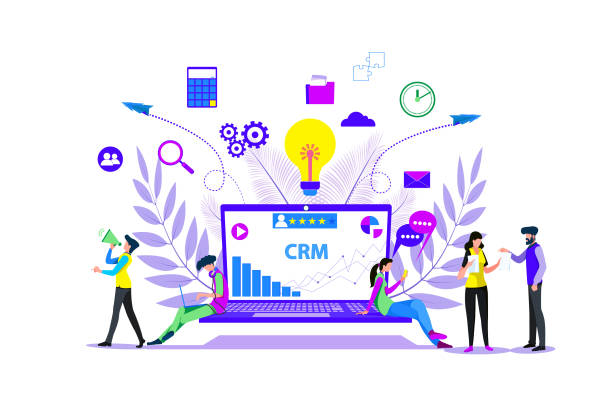
In today’s fast-paced digital landscape, Customer Relationship Management (CRM) systems have become essential tools for businesses of all sizes. However, with the rise of cyber threats, it is crucial to select a CRM that prioritizes security to protect sensitive business information. This comprehensive guide will explore the key factors to consider when choosing a secure CRM, ensuring that your organization can thrive without compromising on data safety.
Understanding CRM and Its Importance
What is a CRM?
A Customer Relationship Management (CRM) system is a software solution that helps businesses manage their interactions with current and potential customers. CRM systems consolidate customer information into a single platform, facilitating better communication, organization, and analysis of customer relationships. This ultimately leads to improved customer service, increased sales, and streamlined processes.
The Growing Importance of CRM Security
As businesses increasingly rely on digital systems to store and manage customer data, the risks associated with data breaches and cyberattacks have risen significantly. A compromised CRM system can lead to loss of customer trust, financial damage, and severe legal repercussions. Consequently, selecting a CRM that ensures robust security measures is no longer optional; it is a necessity.
Key Factors to Consider When Choosing a Secure CRM
When selecting a CRM with a focus on security, several important factors should be taken into account. Below are the critical aspects to consider:
1. Data Encryption
What is Data Encryption?
Data encryption is a process that converts information into a secure format, ensuring that it cannot be accessed by unauthorized users. This process is essential for protecting sensitive customer data stored within a CRM.
Why It Matters
When choosing a CRM, verify that it employs strong encryption protocols, both at rest (data stored within the system) and in transit (data being exchanged over the internet). This ensures that even if the data is intercepted, it remains unreadable to unauthorized parties.
2. User Authentication
Importance of Strong User Authentication
User authentication is the process of verifying a user’s identity before granting access to the CRM system. A robust authentication mechanism ensures that only authorized personnel can access sensitive data.
Multi-Factor Authentication (MFA)
To enhance security, look for CRMs that offer multi-factor authentication (MFA). MFA requires users to provide multiple forms of verification—such as a password and a text message verification code—before accessing the system. This adds an additional layer of security, making it more challenging for unauthorized individuals to breach the system.
3. Access Controls
Role-Based Access Control (RBAC)
Access controls are vital for ensuring that employees can only view or modify information necessary for their roles. Implementing role-based access control (RBAC) allows administrators to define permissions based on user roles, thus minimizing the risk of data exposure.
Importance of Regular Reviews
Regularly reviewing and updating access permissions is crucial for maintaining security, especially when employees change roles or leave the organization. Ensure that your chosen CRM allows for easy management of user access and permissions.
4. Data Backup and Recovery
Importance of Data Backup
Regular data backups are vital for protecting against data loss due to hardware failures, cyberattacks, or human error. A secure CRM should offer automated data backup solutions that store copies in multiple locations.
Recovery Options
In addition to backups, consider the recovery options available. Assess how quickly the CRM can restore data in the event of a data loss incident. A reliable backup and recovery plan is essential for minimizing downtime and maintaining business continuity.
5. Compliance with Data Protection Regulations
Understanding Data Regulations
Different regions have specific data protection regulations (such as GDPR in Europe and CCPA in California) that dictate how businesses must handle customer information. Non-compliance with these regulations can lead to hefty fines and legal consequences.
Choosing a Compliant CRM
When selecting a CRM, verify that it complies with applicable data protection regulations. This includes understanding how customer data is collected, stored, and processed within the system. A compliant CRM not only protects your business but also builds trust with customers who are increasingly concerned about their data privacy.
6. Regular Security Updates and Maintenance
Importance of Patching Vulnerabilities
To maintain the security of the CRM, regular updates and patches are essential. Software developers frequently release updates to address vulnerabilities that could be exploited by cybercriminals.
Commitment to Regular Updates
Look for CRMs that have a track record of providing regular security updates and maintenance. A vendor that prioritizes cybersecurity will ensure that their system is up-to-date with the latest security measures, reducing the risk of potential threats.
7. Integration with Other Security Tools
Enhancing Security through Integration
Many businesses use additional security tools, such as firewalls, intrusion detection systems, and antivirus software, to enhance their cybersecurity posture. Choosing a CRM that integrates seamlessly with these tools can provide an added layer of protection.
API Compatibility
Check if the CRM offers API compatibility, allowing it to connect with third-party security solutions. This ensures that your CRM can work effectively within your broader security strategy.
8. Vendor Reputation and Support
Researching Vendor Reputation
Before selecting a CRM, research the vendor’s reputation in the industry. Read customer reviews, case studies, and testimonials to gauge their reliability in providing a secure CRM solution.
Importance of Customer Support
Strong customer support is essential for resolving security issues quickly. Choose a CRM that offers accessible customer support channels, such as live chat, phone support, and comprehensive documentation to assist users in securing their data.
Conclusion
In conclusion, choosing a secure CRM requires careful consideration of several critical factors. From data encryption and user authentication to compliance with data protection regulations, each aspect plays a crucial role in protecting your business information. By prioritizing these key elements, you can select a CRM that not only enhances your customer relationship management but also fortifies your data security. This proactive approach will help ensure the longevity and reputation of your business in an increasingly digital world.